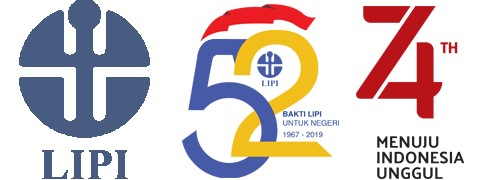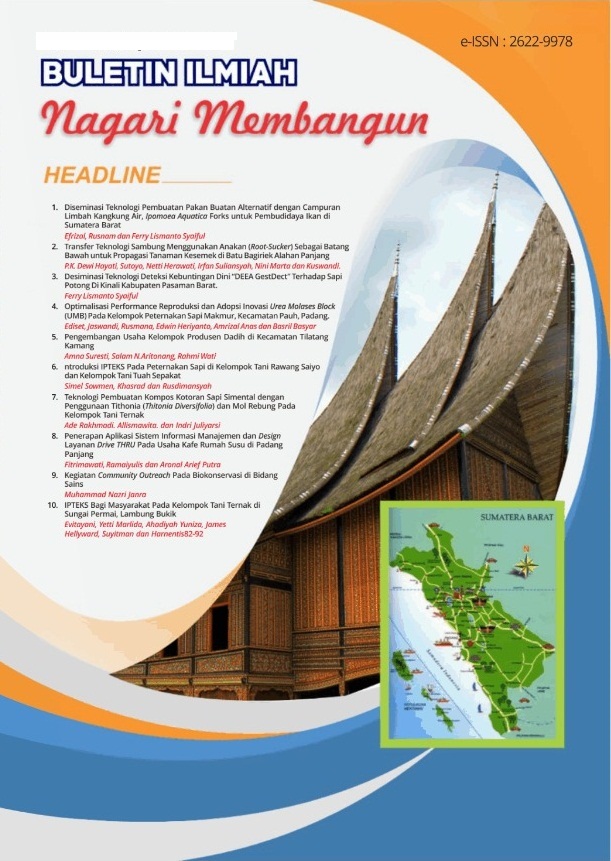EDUKASI KEBERSIHAN DIRI SAAT MENSTRUASI KEPADA PEDAGANG WANITA DI PASAR RAYA KOTA SOLOK
Abstract
According to WHO, 10-15% of the 100 million women in the world are affected by reproductive tract infections, due to their lack of knowledge about the health of the reproductive organs. Lack of knowledge about personal hygiene during menstruation not only increases the risk of reproductive tract infections (ISR) but can cause urinary tract infections (UTI), pelvic inflammatory disease (PRP), and the worst possibility can cause uterine cancer which is the number one cause of death in women. To prevent this from happening, it is necessary to provide correct knowledge to women regarding personal hygiene. What's more, women with certain activities or jobs are often constrained in implementing this hygiene behavior. One of them is a traditional market trader. The market's dirty and damp conditions are sure to be a hotbed of various germs. The body becomes dirty and the vital organs also become sweaty, moist, and itchy. If a female trader is in her menstrual period, it will certainly add to the feeling of discomfort during her activities. This condition is exacerbated if hygiene facilities such as public toilets with clean water provided by market managers are inadequate. The purpose of this activity is to provide education to women of childbearing age as market traders, regarding the practice of personal hygiene during menstruation. The method used lectures and using health brochure media. Pre-test and post-test were carried out to determine whether there was a change in the knowledge of the target group. From this activity, it can be seen that there was an increase in knowledge to 58%.
Downloads
References
Indah, P., Novi, khila firani., & Yuliatun, L. 2013. Pengaruh pendidikan kesehatan tentang menstruasi terhadap perubahan perilaku menstrual hygiene remaja putri untuk pencegahan. ISR, 2: 11–18.
Melati R, Santoso EJ, Sayono. 2011. Hubungan antara pengetahuan dan keterampilan vulva higiene dengan kejadian keputihan pada ibu rumah tangga. J Chem Inf Model, 53(9): 1–9.
Notoatmodjo S. 2012. Promosi Kesehatan Dan Ilmu Perilaku. Rineka Cipta, Jakarta.
Pandelaki, L. G. E. K., Rompas, S., & Bidjuni, H. 2020. Hubungan personal hygiene saat menstruasi dengan kejadian pruritus vulvae pada remaja di Sma Negeri 7 Manado. Jurnal Keperawatan, 8(1), 68. https://doi.org/10.35790/jkp.v8i1.28413
Potter P., Perry A. 2005. Buku Ajar Fundamental Keperawatan : Konsep, Proses, Dan Praktik. 4 Volume 2. Renata K, Editor. EGC, Jakarta.
Syukriyanti S. 2020. Faktor-faktor yang berhubungan dengan tingkat pengetahuan remaja putri terhadap kebersihan organ genital di Pondok Pesantren Darussalam Kabupaten Bogor. Promotor, 3(1): 56.
Tarwoto, W. 2010. Kebutuhan Dasar Manusia Dan Proses Keperawatan. Salemba Medika, Jakarta.
Wardani SPDK, Nurulicha. 2019. Perbedaan pengetahuan, sikap, sumber informasi dan faktor lainnya pada pesonal hygiene saat menstruasi. Jurnal Kesehatan dan Kebidanan, 8(1): 1–13.
WHO. 2010. Infeksi Saluran Reproduksi. World Health Organization.
Widyastuti. 2009. Kesehatan Reproduksi. Fitramaya, Yogyakarta.





















